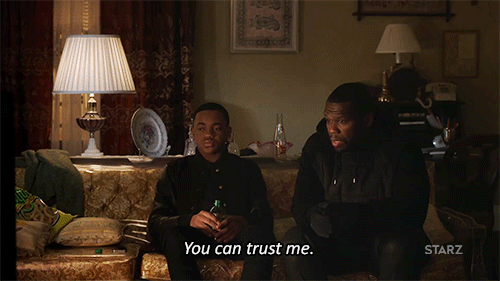Last night, DeMarcus Cousins agreed to a one year $5.3 million deal with the Golden State Warriors. This caused an eruption amongst basketball fans who believed the Warriors have become even more unstoppable with this new addition. In the midst of the uproar, one word—or two, depending on who ask— has popped up more than others: superteam.
The term “super team” has become a buzz word as of late. The truth is, super teams have become not a feature, but a direction that the NBA has shifted to as big market teams scramble in an arms race to become a juggernaut and guarantee championship contention.
Many blame the Miami Heat from 2010-2014 for being the first super team, others go as far back as the 60s Celtics and Lakers. Examples from the past decade include the 2003-04 Lakers with Kobe Bryant, Gary Payton, Shaquille O’Neal, and Karl Malone; the 2008-09 Boston Celtics with Paul Pierce, Kevin Garnett and Ray Allen; even the 2008-09 Los Angeles Lakers with Kobe Bryant, Pau Gasol and Andrew Bynum.
Now, every team with at least three all-stars is considered a super team, regardless of when those players were all-stars. The Oklahoma City Thunder is a super team because of Russell Westbrook, Paul George and Carmelo Anthony. The 2014-15 Cleveland Cavaliers were considered a super team because they had LeBron James, Kyrie Irving and Kevin Love. Even the Houston Rockets of this past season with Chris Paul and James Harden were deemed a super team despite being an all-star short.
With the debates intensifying on what’s considered a super team, who started it and whether this is ruining the NBA. It's time we clearly define a super team and its criteria. Here is a suggestion to start.
A super team must have all of the following characteristics:
1. Team must be already well-established, with a 50+ win record and a deep playoff run in the previous season.
2. Acquisition of at least one all-star in his prime.
3. All the core players are in their respective primes.
Given those characteristics, the number of so-called examples has been substantially reduced. Let's also look into the word “super” which, in this case implies that the team was already great. An archaic definition of the word defines someone who’s super as an extra, unwanted person. This further proves the legitimacy of the first criterion. For someone who is extra and not needed to enter the frame shows that the original party was successful without its newest member. Thus, turning a great team into a superteam.
Moving on to the second and third criteria, what's important to consider with both is context. Context is something that is often lost in sports history, but it's critical for evaluation.
Taking a team that was scraping the bottom of the barrel or keeping its head above water and suddenly giving it a couple of hall of famers isn’t a super team. Taking a team that already had a championship(s) and adding ring chasing, soon to be hall of fame veterans is not a super team. Taking a team that in two years won a championship and achieved the most wins in a single season and adding a superstar, that’s a super team.
This isn’t to single out Golden State, but in looking at what they’ve achieved before and after getting Kevin Durant, their case stands out from the rest of the “super teams” people have mentioned.
Had it been Tim Duncan who joined the Lakers instead of Karl Malone in the 2003-04 season, that would’ve been a super team without question. If any of the MVP versions (’05 and ’06) of Steve Nash joined the Lakers with Dwight Howard in the 2011-12 season, that would’ve been a super team. If the Cavaliers went 53-19 and made it to the Eastern Conference Finals before getting LeBron James and Kevin Love, instead of finishing 33-49 when LeBron came back home, that would’ve been a super team. If Carmelo Anthony was any version of himself from 2014 and earlier, the Thunder would be a super team.
Since none of the scenarios I mentioned were the case, these teams weren't and aren't super teams, they're just teams with a stacked roster. There's a difference between being stacked and being super. Both of which need to be taken into consideration when looking at a particularly franchise's dominance.
By these criteria, the Big Three Era of the Miami Heat was not a super team because the Miami Heat were not successful in the 2009-10 season. They were three wins shy of a 50 win season and they were eliminated in the first round of the playoffs to the Boston Celtics.
The Big Three in Miami may have popularized stacked rosters and all-stars teaming up in the modern era, but even that is a laughable statement because the Celtics did it two years prior. The only differences are the Celtics did it on a smaller scale and they won one less championship. Attributing LeBron and The Big Three for starting the superteam trend is completely inaccurate.
While my criteria isn't canon, a definition must be agreed upon in order for any debates or conversations to progress. With it, we can pinpoint the real originators of this phenomenon and possibly use their history to predict the fate of the Golden State Warriors and all of the other "super teams" to come.



































